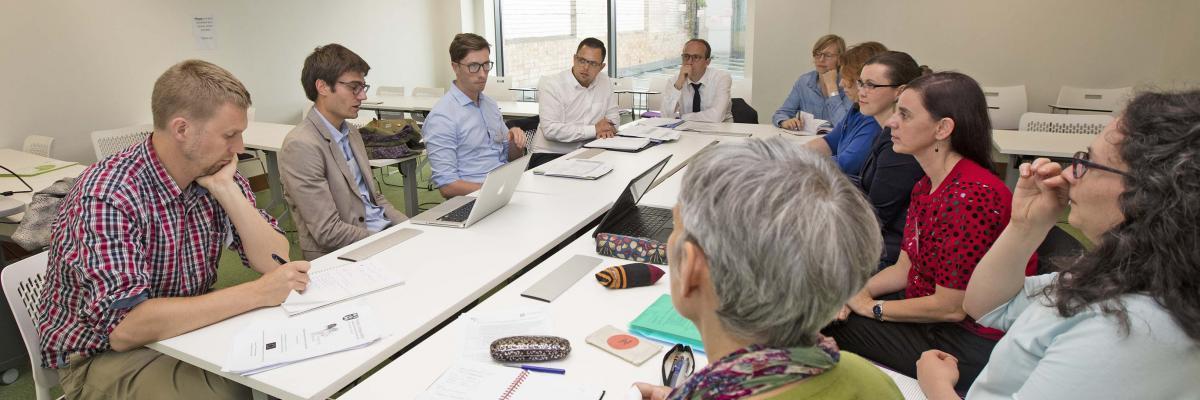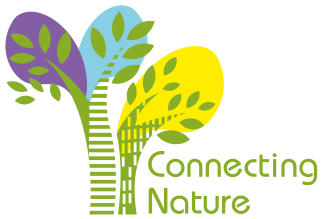
Work Package 1 – Assessment, Evidence and Evaluation
Leader – Universidade da CoruÑa - UDC (ES)
Work Package 1 will develop and test a truly global, comprehensive and robust mechanism that will be used to monitor and evaluate the effectiveness of nature-based solutions implementation in cities using the following impact indicators and assessment citeria
Impact indicators:
- Climate Change adaptation and resilience
- Health and well being
- Social cohesion
- Economic development potential
- Green business opportunities
Assessment criteria:
- Cost effectiveness
- Inclusivity
- Policy embeddedness
- Stakeholder endorsement
The process will include extracting the most important lessons from previous development and implementations of nature-based solutions in European cities as reflected in urban research, previous European projects, existing European databases on green solutions, as well as the experience of nature-based solution exemplars in the front-runner cities. The objective to build a coherent reference framework that meaningfully connects different types of data and information for the evaluation of the five areas of performance of nature-based solutions as well as to identify new synergistic data-gathering techniques that make use of the latest available technologies, allow representation of traditionally under-represented groups in urban policy-making, and are cost-effective. This process will be designed with front-runner cities and applied to the measuring of progress towards objectives at different stages in the deployment of nature-based solutions. This work package will also see the creation of a Geospatial Information and Communication Technology platform for gathering feedback from the webinars in other work packages, map current and future knowledge, gather knowledge from the communities-of-interest in all cities, and measure impact.
Work Package 2 – Accelerator Master Planning
Leader: Dutch Research Institute for Transitions – DRIFT (NL)
Work Package 2 will develop an urban planning process that will ‘burst open’ silos, enrich and nurture social, business and governance innovations and focus on the scaling-up of nature-based solutions in cities. Instead of starting with identification of a problem or challenge, the new urban planning cycle will start with the identification of opportunity spaces by matching policy and market needs and proceed with formulating guidelines for innovative ways of stakeholder engagement and citizen stewardship of embedded nature-based solutions, identifying funding and financial models for the successful implementation of nature-based solutions and ultimately deploy market and knowledge valorisation of nature-based solutions. With these foundational overarching planning steps, this work package will employ the creativity, forward-looking attitude and pragmatism of the front-runner cities to create a new urban planning process: Accelerator Masterplanning. The accelerator masterplanning process will also include mechanisms for relating to funding resources as well as ways to reflexively monitor on-going scaling processes while remaining open to new market opportunities and financial models.
Work Package 3 - Scaling up and financing within front runner cities
Leader – University of East London – UEL (UK)
Work Package 3 will showcase, and share learning from, the scaling-up, replication and integration of nature-based solutions for city-making within front-runner cities. Existing expertise within front-runner cities will be characterised and enriched through the synthesis of the evaluation mechanisms, accelerator plans and financial innovation models developed in work packages 1 and 2. Using this consolidated expertise, front-runner cities will develop and implement city-wide masterplans for nature-based solutions driven by a curatorial planning approach. This will include the documentation and communication of adaptive governance processes through learning-by-doing experiences that will be fed back iteratively to work packages 1 and 2, through direct mentoring to fast-follower cities in work package 4, and to global market places through work packages 5 and 6. Each front-runner city has already begun to up-scale and replicate nature-based solutions and each has developed expertise in relation to their own local context. This work package will further develop this expertise to ensure that evaluation processes, implementation strategies and funding pathways are in place to unlock the nature-based solution masterplan exemplars and transfer this experience and expertise to other cities. A key focus of this will comprise in maximising the approach of multi-functionality in nature-based solution planning. As such, the front-runner cities will scale-up and deliver on key environmental and socio-economic objectives as listed in WP 1.
Work Package 4 – Scaling out in fast follower cities
Leader – Trinity College Dublin - TCD (IE)
Work Package 4 focuses on the implementation of resourced masterplans in the fast -follower cities. The success of this work package rests on knowledge transfer and scaling of nature-based solutions, funding, and governance mechanisms from the front-runner cities out to the fast-follower cities. The mechanism for achieving this scaling-out draws on the Accelerator Masterplanning process from work packages 2 and 3. This work package will develop financial and innovation models for nature-based solutions for scaling-out in the fast-follower cities. The objectives in this work package are:
- To engage the fast-follower in capacity-building and experiential learning using a curatorial planning process;
- To develop masterplans, and to submit applications for the funding to realise these masterplans, for rolling-out nature-based solutions in the fast-follower cities;
- To develop sustainable support for innovation, exploitation and enterprise development using selected and promising new nature-based solution exemplars in the fast-follower cities;
- To feed back experiences and knowledge gained into the reference framework for nature-based solutions.
Work Package 5 – Going Global – Transferring nature based solution to multiplier cities
Lead Partner – ICLEI European Secretariat GMBH - ICLEI (de)
Whilst the activities in the multiplier cities shall be co-financed through Connecting Nature, the consortium has supported regional research partners and multiplier cities to apply for co-financing from complementary funding programmes in China, South Korea, and Brazil. At the outset of this work package, EU and non-EU-partners will begin to work on establishing the regional partnerships outside of Europe, apply for support funding through the collaborative mechanisms of that region with Horizon 2020, and thus begin to grow the idea of the implementation of nature-based solutions.
Work Package 6 – Dissemination, Knowledge Management and Enterprise Acceleration
Lead Partner – Horizon Nua - HU (ie)
The role of Work Package 6 is:
- To effectively engage communities of interest and communities of influence in demonstrating, evaluating and funding the large scale implementation of nature-based solutions all cities;
- To raise awareness among policy and decision makers about the Connecting Nature evidence base and reference framework on nature-based solutions and to support them in the development of evidence-based policies and plans for their own cities based on the reference framework, planning supports, tools and accelerator programmes available through Connecting Nature;
- To communicate EU leadership in a global market for nature-based solutions;
- To encourage reporting and information sharing by cities, supporting cities to reflect and report on the combined benefits arising from the implementation of multiple nature-based solutions in the city and sharing their experience;
- To further develop the Oppla platform with more urban products and resources.
Work Package 7 – Coordination and project management
Lead Partner – Trinity College Dublin - TCD (IE)
The objective of Work Package 7 is to ensure the efficient and timely implementation of project activities namely
- Administrative, legal and financial coordination;
- Consortium coordination, reporting, deliverable production and quality management;
- Strategic, operational and risk management.
Work Package 8 – Ethics Requirements
Lead Partner – Trinity College Dublin – TCD (IE)
Work Package 8 sets out the ethics requirements that Connecting Nature must comply with.
